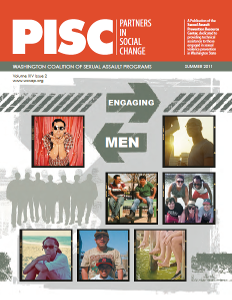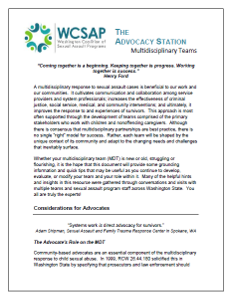No matter what your formal position, you can be a leader in advocating for services to address Intimate Partner Sexual Violence (IPSV). Often, it takes just one dedicated individual to initiate these much-needed services.
Do your homework
Even if you are a very experienced advocate, it is crucial to educate yourself thoroughly on Intimate Partner Sexual Violence. Two great starting places: the book…

